So far, 2023 has been an unpredictable year for cinema. With tent-pole after tent-pole floundering, it’s been a year of scrappy mid-budget pictures doing what the studio behemoths couldn’t. Consequently, it’s been a phenomenal year for horror, action, drama, and animation, with the last few year’s resurgence in left-field genre movie-making paying dividends to more curious viewers, and big studios catering to the mainstream now finding that their audiences are drying up. Despite (or perhaps because of) so much chaos in the industry with writers striking and actors and directors poised to follow suit, we’ve good reason to be cautiously optimistic about the future of cinema, and here’s 23 reasons why…
John Wick: Chapter 4
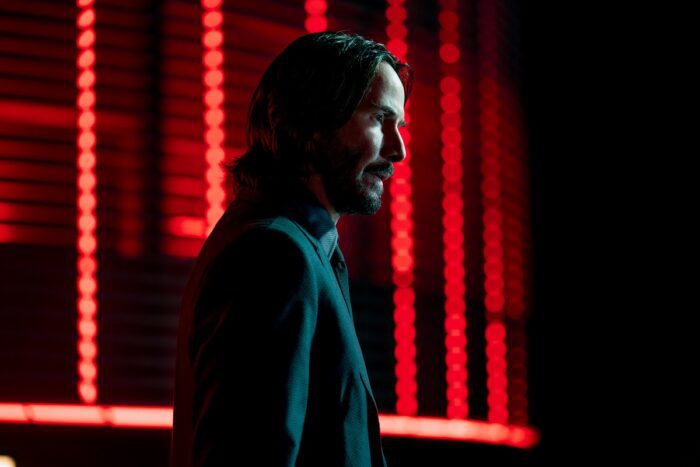
John Wick: Chapter 4’s opening seconds involve our titular character hitting a punching bag. But, this is no ordinary punch nor is our hero an ordinary character. This opening punch is so thunderous my seat was literally shaking in the theater. Through this one punch, master action director Chad Stahelski prepares the audience for the enthralling and glorious epic that is to follow. We don’t make epics anymore (thank god for Sir Ridley Scott for keeping it somewhat alive), but John Wick: Chapter 4 is a modern-day epic of a beloved character we have been following for the past decade. Each installment is a staggering achievement in action filmmaking but this—possibly—concluding chapter rests on top, just like John Wick himself.
The way the action is depicted in this movie is something unlike you’ve ever seen before. Essentially, this is a film with six action set pieces. But each of these set pieces is elongated, exaggerated, and ethereal. It’s incredibly violent with Keanu Reeves giving it his all. I still think about some of these sequences, particularly the nightclub scene and the famous battle on the stairs. The nightclub set piece—with a total game Scott Adkins—encapsulates the absurdity and sheer enjoyment of watching these movies. Dancers in the background (who must be on ketamine) are unfazed while people fall from stairs, get slammed to the ground, and die mercilessly by John Wick’s hands.
This installment also features the strongest supporting cast with Donnie Yen’s Caine, Rina Sawayama’s Akira, and Bill Skarsgård’s Marquis having a ton of fun and fitting perfectly with this bloody world. And, of course, Reeves is always fantastic. Only Tom Cruise can do action like him and, if this is the last time we see John Wick on screen, then it was a hell of a run. — Aqib Rasheed
Rye Lane
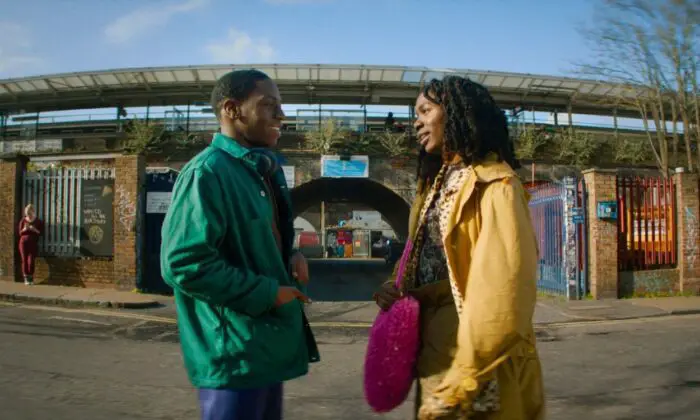
As runtimes balloon to three hours and the mid-budget studio comedy is next-to-non-existent, there has been a cry for return to what the ’90s and ’00s excelled in: breezy, endearing romantic comedies. Despite this desire, Rye Lane has wrongly been flying under the radar. At an airy 82 minutes, Rye Lane is like if Richard Linklater’s Before Trilogy took place in South London and had the warm heart of a Nora Ephron movie with the cheekiness of Easy A. Dom (David Jonsson) and Yas (Vivian Oparah) are two strangers, each reeling from their own break-ups and spend the day walking around, talking, and getting to know each other. It’s more than a simple walk and talk, but the twists and turns of their day together are best kept secret. In a year of highly-touted cameos, Rye Lane quietly delivered the only one worth talking about without letting it overshadow Dom and Yas’ love story. — Tina Kakadelis
Air
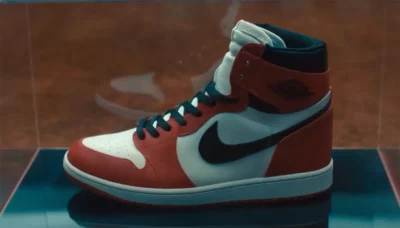
Air takes place in 1984 and follows Nike marketing executive Sonny Vaccaro (Matt Damon) and his bold strategy to try and sign a college basketball phenom Michael Jordan to the Nike basketball team, an area at Nike that was on the verge of folding. Before the movie even begins we know how it will end, as the Jordan brand brought in over $5 billion in revenue for Nike last year and is so popular it feels like no matter where you go you are seeing
But despite knowing the outcome of the movie even before we enter the theater, Air is a true sensation. Alex Convery’s screenplay is smart and full of humor and insight into how the deal got done and Ben Affleck’s direction is full of life. The ensemble, led by a terrific Damon and scene-stealing Jason Bateman, brings the film to life. Air is a rousing sports film about following your instincts and not doubting yourself when everyone else does. —
The Starling Girl
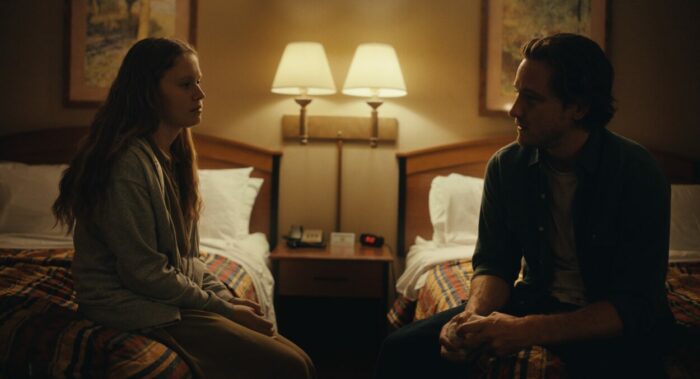
It takes a particularly deft director to take a simple concept and execute it with immense precision. The concept of The Starling Girl is basic: a young girl, Jem (Eliza Scanlen), comes of age in a religious community. However, the bulk of the story comes in the form of Jem’s relationship with her young, charismatic pastor, Owen (Lewis Pullman). What makes The Starling Girl such a stunning debut feature is how it unflinchingly and purposefully places the audience in Jem’s shoes. Even though the viewer sees the writing on the wall in terms of her relationship with Owen, they still manage to get swept up in his charm. It’s powerful and forces the audience to see how Owen abuses his position of power. Scanlen’s performance alone is reason enough to seek out The Starling Girl. She stole the show in Greta Gerwig’s Little Women and HBO’s adaptation of Sharp Objects and The Starling Girl is just the beginning for Scanlen and writer/director Laurel Parmet. — Tina Kakadelis
Asteroid City
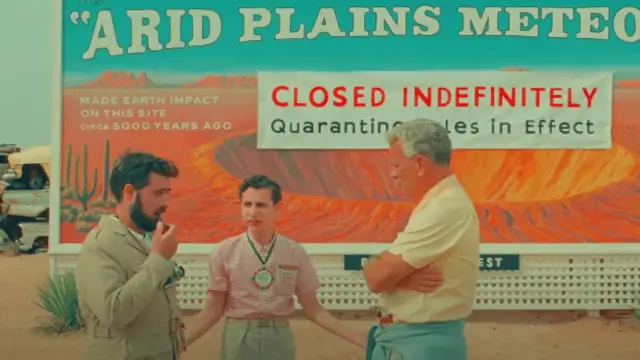
With the recent proliferation of online parodies, Wes Anderson has been one of the most discusses filmmakers of the season, with debate raging as to whether his films really are all style no substance or whether they strike chords far deeper and more poignant than their arch delivery suggests. Given this film’s inclusion on this list, it’s clear which side of that debate I’m on, but I do understand. Asteroid City has been his most divisive film to date and it deserves to be as it’s by far his most obtuse and slippery work. It is, to give his haters credit, kind of a mess, but a fiercely intelligent, inquiring and poignant one. If there’s one of his films that goes beyond entertainment or melodrama and exists as a truly experimental and existential piece of art, it’s this, and it still manages to be an amusing and poignant experience as well.
Anderson’s films have always been Brechtian in style, but Asteroid City breaks new ground in rubbing the audiences’ noses in how made up it is, stretching audience identification to what is, one would assume, breaking point. It expresses such longing for closure, assurance and companionship, the most consistent theme across Anderson’s catalog and which here feels uniquely personal. It’s a playful, eccentric, quirky, and poignant little film that turns the act of storytelling into a layered metaphor for life’s great mysteries and upsets. When you have no idea what to do: you stick to the script, do what you did in rehearsals, commit to something larger than yourself, and have faith that the people around you will catch you if and when you fall. It’s also as close as we’ll ever get to a Fallout prequel onscreen. — Hal Kitchen
Knock at the Cabin
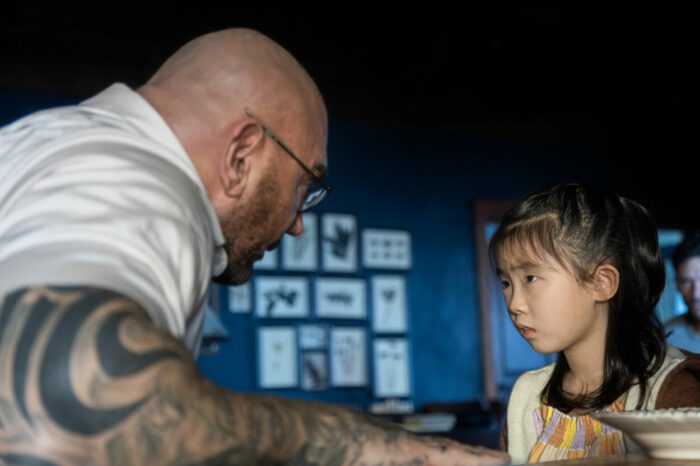
Adapted from Paul Tremblay’s book The Cabin at the End of the World, Knock at the Cabin finds a young girl (Kristen Cui) and her parents (Jonathan Groff and Ben Aldridge) taken hostage by a group of armed strangers who try and convince the family that one of them must die in order to stop a global apocalypse.
Knock at the Cabin is writer/director M. Night Shyamalan doing what he does best. It is a claustrophobic, nearly single-setting thriller that tackles themes of religion, morality, and destiny. Like most Shyamalan films, it is visually stunning, with crafty cinematography and excellent production design. It also features one of the best performances of 2023 so far and one of the best in any M. Night Shyamalan movie in Dave Bautista, who plays the leader of the armed strangers. His quiet intensity always keeps you on edge and he portrays a level of gravitas I have never seen from him before. —
Joyland
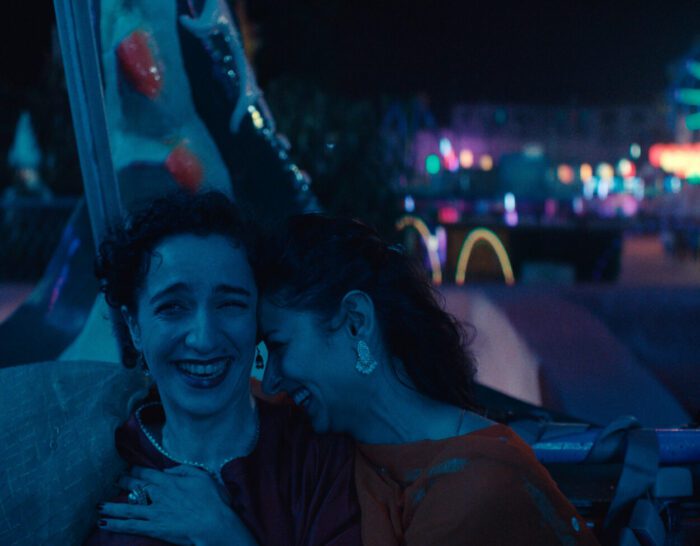
A radical, poignant and often exceptionally beautiful film, Joyland is a stunningly subversive attack on traditional gender roles not just as they exist in the most puritanical, patriarchal corners of inner-city Lahore, but across the globe. Together with his co-writer Maggie Briggs, director Saim Sadiq (whose work here is so staggeringly confident and articulate that I’m shocked it’s his first feature) manages to navigate the nuances of his drama with such precision that its scope explodes, tackling such a breadth of specificities that by the time his film winds down to its conclusion, it feels as if the entire concept of gender itself is on trial. Scene by scene we see how gender cages each of its characters and how ideals of propriety poison the spirit by degrees. It’s one of the most fascinating, surprising and pointed tragedies in recent years.
Joyland is astoundingly mature for a first film, but then some of my favorite films of recent years have come from debutante filmmakers bringing personal passion projects to the screen after what must have been years of hard graft and revision, and I might well say that Joyland has earned it’s place among them. By concentrating on a family, and expanding its gaze through each extended member, Joyland manages to construct and empathetic portrait of a society whose every member is constrained by its shared values, and bring to vivid life the specter of one where that need not be so. –— Hal Kitchen
The Eight Mountains

Having arrived in North American theaters this April, The Eight Mountains, the Cannes Jury Prize Winner directed and adapted by Felix van Groeningen and Charlotte Vandermeersch from the Italian novella of the same name by Paolo Cognetti (Le otto montagne), is, as I noted in my original review, simply not to be missed. I can’t recall a recent film that feels so perfect in its intention and execution as this, and I imagine it will be one of those classics that viewers return to every few years to immerse themselves in its epic tale of friendship.
The film’s grand sweep is told in tiny moments. Pietro and Bruno meet first as young boys in the mountains of Northern Italy when Pietro is a visitor to Bruno’s mountain village. They form an on-and-off friendship that rekindles when Pietro inherits a small plot and dilapidated building near Bruno’s home, and the two together restore it, by hand, working side-by-side over a long summer, and remaining friends for more than a decade after.
As Pietro and Bruno, Luca Marinelli and Alessandro Borghi are the yearning intellect and self-contented mountain man, respectively: the two are keenly different from each other, yet just enough alike one another to convey a strong sense of comradeship. Their performances, combined with the majesty of the mountain setting and the impeccable craft of the scriptwriters and filmmakers in adapting Cognetti’s novel, make The Eight Mountains a monumentally deep and moving cinematic experience. — J Paul Johnson
Creed III
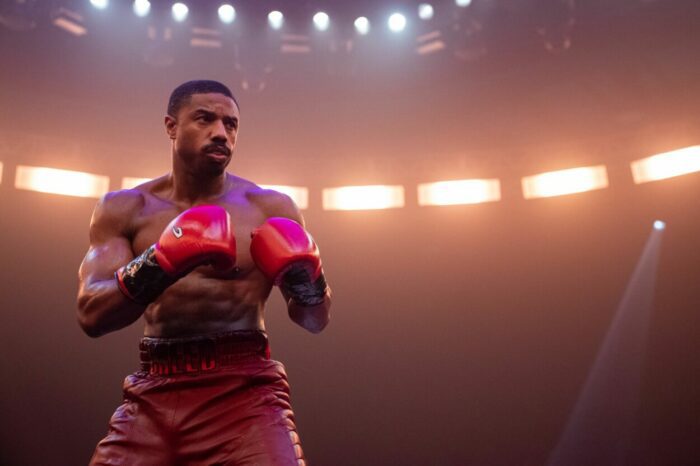
Despite not being the titular character or the lead actor of the first two films, it could be argued the Creed franchise has been just as much a Rocky Balboa and Sylvester Stallone franchise as it has been a Creed and Michael B. Jordan franchise. The first film found Rocky getting back into the boxing game and the second film saw Creed fighting a ghost from Rocky’s past. There were Creed stories in these films, but Rocky and Stallone always felt like they were front and center.
But that all changed in Creed III. Michael B. Jordan, in an impressive directorial debut, made a movie about Adonis Creed and his legacy. It has Creed fighting someone from his past (a menacing Jonathon Majors), dealing with being a good son, father, and husband, building his own legacy, and handling the guilt of his past. Rocky and Stallone are nowhere near this film (Stallone was only a producer) and it cemented the Creed franchise as a franchise about Adonis and a franchise led by Jordan.
Jordan directs the hell out of the film, adding layers of emotion, intensity, and humor while also crafting some of the most unique boxing scenes I’ve ever seen. Creed III is a knockout and one of the best directorial debuts of the year. —
Spider-Man: Across the Spider-Verse
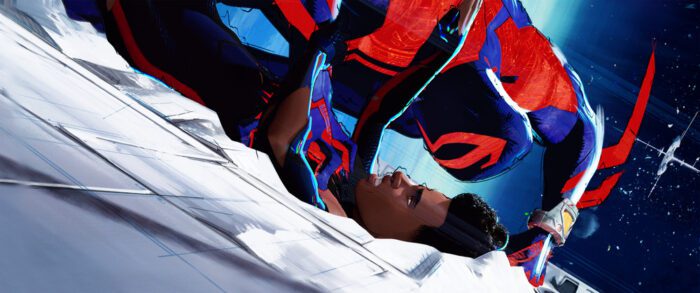
The MCU has largely mishandled its take on the multiverse. Instead of diving into the weirdness of different universes, their myopic approach is reduced to cameos and red and green lights being switched. The Flash doubled down on this delivering one of the most unpleasant movie-going experiences of recent times. Really, only Everything Everywhere All At Once has excelled in portraying a fun and wacky multiversal take. That is, until the levitating-in-my-seat-good Spider-Man: Across the Spider-Verse.
When talking about this movie, we need to stop using qualifiers like “best comic book movie,” “best animated movie,” and even the aforementioned “best multiversal movie.” While those may be true, we should evaluate this movie with the Past Lives-prestige level movies and just call this one of the best movies of the year, period. The first Spider-Verse movie set so many standards across multiple genres and this sequel meets those standards and sets new ones. I became more emotionally invested in the story, was amazed even more by the animation, and was on the edge of my seat during the great action sequences. This is a triumph, plain and simple.
Much has been said about the cliffhanger ending and the “Part One” of it all, but I largely disagree with this discourse. I think the movie does a great job of being a standalone story where multiple characters have developed arcs. Sure, they might need to be completed in Part Two, but I don’t feel short-changed or left with the notion that nothing happened. In fact, it makes me even more excited to see what the team behind this movie can do with Part Two. Till then, multiple rewatches of Spider-Man: Across the Spider-Verse will be more than satisfactory. — Aqib Rasheed
Past Lives
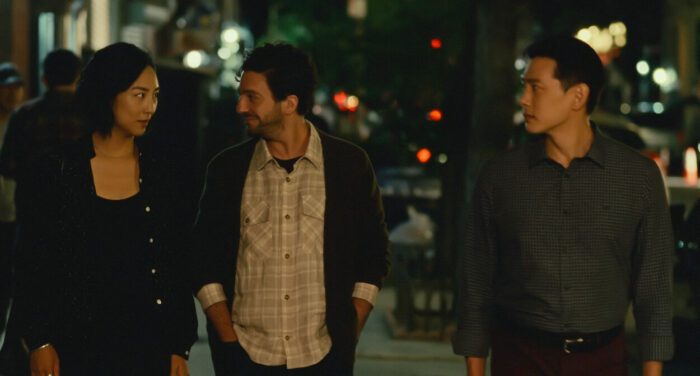
I just can’t stop thinking about Past Lives. I’ve seen it three times now and each time my admiration—which was already immensely high—grows. This is a very quiet and tender romantic drama, but Celine Song’s expertly written script plays out like a suspense thriller. There are moments that take my breath away and are overwhelming in the best way possible. In the vein of John Wick: Chapter 4, this also feels like a modern-day epic. The film spans decades but explores the notion of connection through multiple lifetimes. It’s a movie that had me thinking about my own life and my relationship with other people.
Growing up and saying goodbye is really hard to do. Song portrays this heartwrenching feeling in a cinematic and poignant way but frames it as a “who will she choose” film. This way the audience is gripped with the screenplay and doesn’t realize the underlying message. And when they do, a flood of tears will be coming from their eyes. The direction and the writing are so delicate, I am astounded this is Song’s debut feature. She will be a major voice in Hollywood for years to come.
Each of the three leads is perfect in their roles and all should be up for major award considerations. They’re all written with a ton of depth, sincerity, and complexity but Song gets three fantastic performances. No one’s a villain and no one is a hero that swoops in and saves the day. These are all real people that have a special connection with one another.
If by the end of the year, Past Lives remains the best movie, I would not be surprised in the least bit. It’s a movie that welcomes thoughtful conversations and debates, something we’ve been missing from movies recently. There are a lot of promising movies to release in the next 6 months, but it will be hard to top this masterpiece. — Aqib Rasheed
Tetris
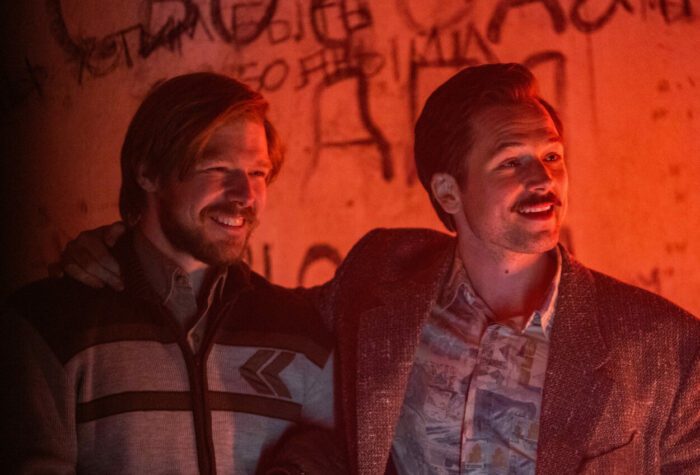
Due to the enormous box office spoils of The Super Mario Bros. Movie, Tetris will likely go down as the forgotten, adult-oriented “other” video game-based movie of 2023. Also, thanks to the big-name success and early awards buzz surrounding Ben Affleck’s Air, Tetris will also be behind the front of the line when it comes to 2023’s little mini-trend of corporate history movies, joining BlackBerry too. That’s a damn shame, because there’s a great deal of entertainment value coming from the dramatic license-infused hurdles laid out in this (as Wikipedia slots it) “biographical thriller” playing on Apple+.
Yes, biographies of bean counters and briefcase-toting suits can have thrills and spills. A committed performance from Taron Egerton and his refined mustache-flexing skills as video game entrepreneur Henk Rogers gives Tetris a pep in its step equal or better than the A-list efforts in Air. You may not see another movie for quite some time where paper contracts hitting tables for potentially industry-rattling and life-altering signatures becomes the fuel for edge-of-your-seat intrigue. That’s a bit of the charisma of Tetris.
And, if you’re not into the board room power plays, there’s still the aura of the puzzle-based video game itself. Tetris may be the most universally addicting video game of all-time. Its buzz permeates the energy of this movie because, like the people who first created it, discovered it, and sold it, we see and feel the same craving for wanting it any way we can. — Don Shanahan
Suzume
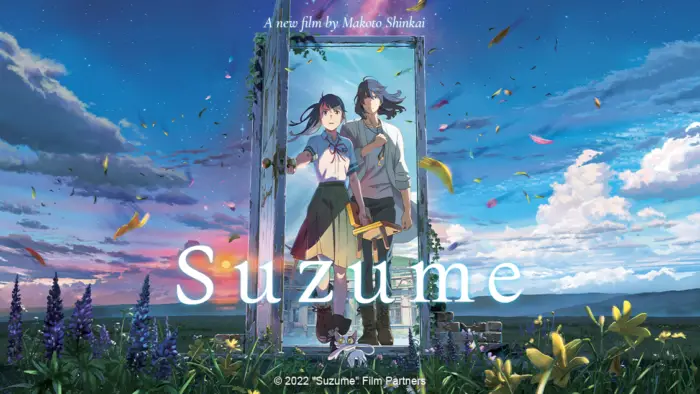
Over the years I’ve grown to have a real soft spot for anime. Japan’s position as the center of the animation universe is founded on their recognition of the potential of animation as a medium for adult stories and not just a medium of bright colors for kids. Makoto Shinkai has been building up a catalog that marks him out as one of the best animation directors in the world and since the release of his undisputed masterpiece Your Name in 2016, he’s reached maturation, found his voice and embarked on a trilogy of high-concept coming of age fantasies that use the tropes associated with disaster movies to explore the fragility of adolescence and first love. Each of these films is a contender for the best film of 2016, 2019 and 2023 respectively, such is the visceral beauty of the animation and the sensitive warmth of the unforgettable characters.
On paper, the story of teenager Suzume and her efforts to return a demigod to the post they’ve deserted make for an absurdly busy road movie, but the refined skill with which Shinkai constructs his narrative and navigates its emotional peaks and valleys are as beguiling and effortless as ever. It’s an utterly enchanting and genuinely magical piece of cinema that pulls the viewer into its world without overwhelming them with exposition or distracting them with irreverence. It’s a truly timeless and universal masterpiece and a classic in the making. — Hal Kitchen
Return to Seoul
Return to Seoul was not originally going to be one of my picks for this list; in fact, when I first saw it, I wasn’t even convinced that I liked it. I found it slow, ponderous, pretentious, and maybe even a little misogynistic. But as time has gone on, I’ve found myself increasingly beguiled by its difficulty and its complexity. It’s a film that relishes in how unlikable its main character is, making no concessions to making her sympathetic or charismatic, but still, it doesn’t vilify her either. It’s a movie about her pain and how she takes it out on others. Freddie is a classic ‘insecure avoidant’ personality, and Return to Seoul might be one of the greatest character studies ever put to screen.
That’s thanks in large part to Ji-Min Park, who gives easily the best performance of 2023 so far. Over a decade onscreen, we watch as Freddie’s life becomes consumed by the seeds of malcontent that have lain dormant until awoken by a whim. She was abandoned by her birth mother and that fact has become a trauma that has defined her whole personality, as she lives a life devoted to drowning out the voice in her brain telling her she wasn’t wanted, and does everything in her power to convince herself she doesn’t need a mother, or anyone. It’s a painful place to take yourself emotionally, and I struggled a lot with this film, but I cannot deny its rawness or its authenticity. It’s truly heartbreaking in the way only flawed films can be. — Hal Kitchen
Blue Jean
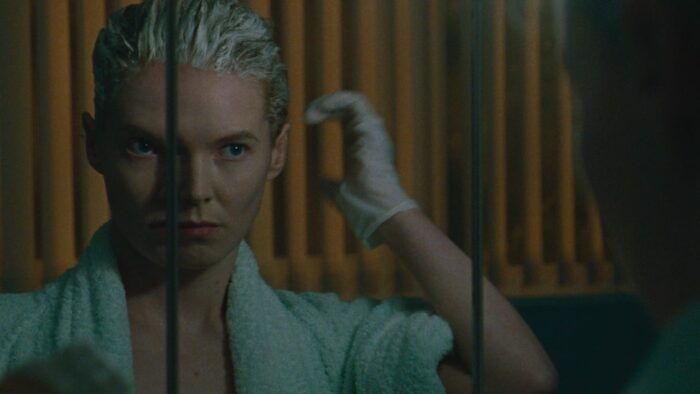
I was enamored with Georgia Oakley’s film the moment I watched it at last year’s London Film Festival, but throughout the months since we’ve seen a horrifying upsurge in transphobic rhetoric from high profile figures, politicians and news outlets alike and one thing their hate speech has in common is that it’s identical to the arguments used to rationalize the bigotry against homosexuality in the 1980s. Bigotry that forced lesbians like Jean (an astonishing performance by Rosy McEwan) into the closet just to keep their jobs, and forced silence and shame onto young girls like Lois (Lucy Halliday) that it deprived of mentorship as they negotiated an adolescence in a world that treated them like criminals. Blue Jean is not just a fantastic character study of a young woman internalizing a lifetime of shame and hatred, but it is the film for our time, an uplifting, hopeful call to arms, and a sobering reminder of what these people are trying to take from us. I’d make it compulsory viewing in every high school in the world if I could. — Hal Kitchen
The Worst Ones
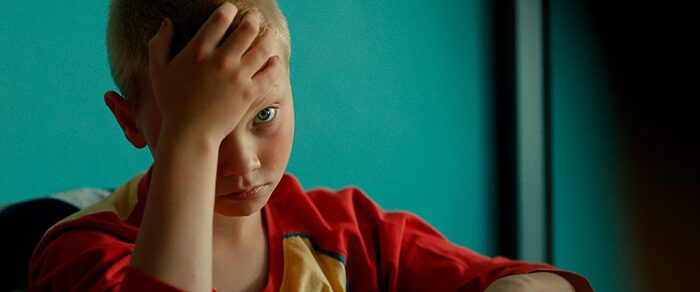
Another Cannes prizewinner (Grand Prix–Un Certain Regard) last year, The Worst Ones is a brilliant, beautiful, wildly metatextual flex of a film that works on several levels. Shot and set in Boulogne-sur-Mer in northern France, the basic story concerns itself with the production of a feature film: Flemish director Gabriel (Johan Heldenbergh) is planning a coming-of-age story focused on young children from the suburb’s working class. It’s a long-planned, expressly personal film to be called Pissing in the North Wind.
To cast the film In the tradition of banlieue cinema requires auditioning and casting nonprofessional actors for each of the roles in order to achieve an immediacy that will capture the rough-and-tumble lives of the youth as they experiment with alcohol, drugs, sex, and violence. Sounds simple, right? Not if you can imagine both the problems and the ethics of casting at-risk youth in at-risk roles. The children he casts from the local Cité Picasso housing project are all working-class themselves. The locals grumble with resentment that the chosen cast are all “the worst ones,” the kids with reputations who were picked unfairly over their own and who will reap rewards that are undeserved.
The “worst ones” have their own issues to be sure—mental health, physical abuse, sexual attraction, and more. These complicate the film’s production, but The Worst Ones wisely focuses its attention on the children whose lives are not automatically made better by virtue of appearing in a feature film. In some ways, in fact, the film that Gabriel is making exacerbates their problems, making The Worst Ones a film that takes on the very notion of street-casting as its central issue. Does it, can it, benefit those who it features? Should it? Or is the simple goal of achieving a level of realism its own sufficiently just reward? With excellent performances from its young cast and a canny narrative conceit, The Worst Ones makes for a thought-provoking drama both behind and in front of the camera. — J Paul Johnson
You Can Live Forever
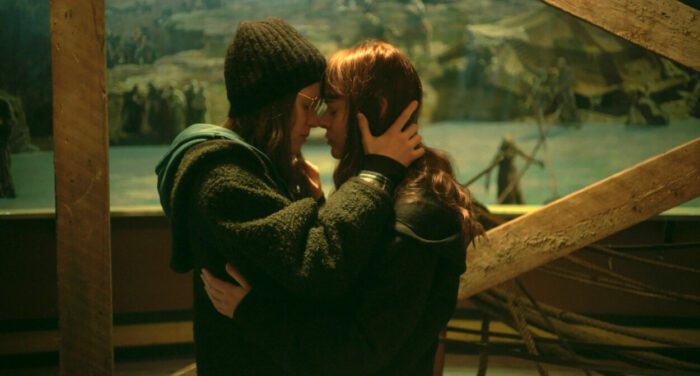
You Can Live Forever is the personification of the totality of teenage crushes. The film captures the heartache, joy, and all-consuming nature of experiencing love for the first time. Jaime (Anwen O’Driscoll) moves to a small Quebec town to live with her aunt (Liane Balaban) and uncle (Antoine Yared) after a death in the family. The small town is primarily made up of Jehovah’s Witnesses, including Jamie’s aunt and uncle. At one of the weekly meetings, Jamie locks eyes with the congregation leader’s daughter, Marike (June Laporte). The friendship between the two develops into something romantic. You Can Live Forever is an adolescent Portrait of a Lady on Fire. All of the heartache, passion, love, humor, and angst of love is on full display. — Tina Kakadelis
Are You There God? It’s Me, Margaret.
Are You There God? It’s Me, Margaret.’s journey to the big screen has been 50+ years in the making. Judy Blume’s novel has been a source of guidance for generations. Margaret (Abby Ryder Fortson) is eleven years old and her parents (Rachel McAdams and Benny Safdie) have decided to move out of New York City for the suburbs of New Jersey. It’s a massive upheaval that coincides with the turbulent time of Margaret coming of age. Most people think of this book as the one that talks about periods, but that reduces its groundbreaking impact. Are You There God? It’s Me, Margaret. is a young girl’s journey in spirituality while also experiencing a first crush. The film is faithful to its source material and feels urgent, relevant, and contemporary. Most of all, Are You There God? It’s Me, Margaret. is like spending time with an old friend. It’s warm, delightful, and familiar in the best possible way. — Tina Kakadelis
King Coal
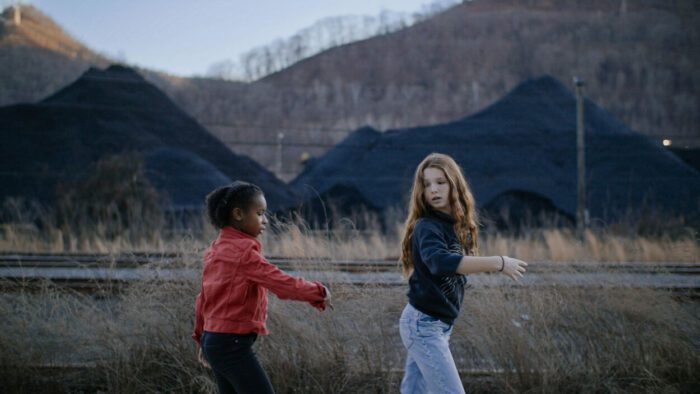
I am a coal miner’s granddaughter. My mom’s side of the family has roots in rural West Virginia and I have recently moved to Appalachia. There’s always been an intrinsic love for this part of the United States, but it’s a love that I had never seen reflected back to me in popular culture. Usually, when a story takes place in West Virginia, it’s an outsider’s point of view that can fall back onto stereotypes that are cruel. It wasn’t until I saw King Coal that I finally saw the love I have for Appalachia on the big screen.
King Coal is a documentary by way of lyrical folklore. The film personifies coal’s immense impact on that region by creating a character named King Coal and describes his cruel and loving nature through a gorgeous melodic voiceover. Equal parts a history of Appalachia and a reclamation of an identity, King Coal is a miraculous look at the power of myth making and how deeply coal is embedded into a way of life that is forcibly ending. — Tina Kakadelis
Tori and Lokita
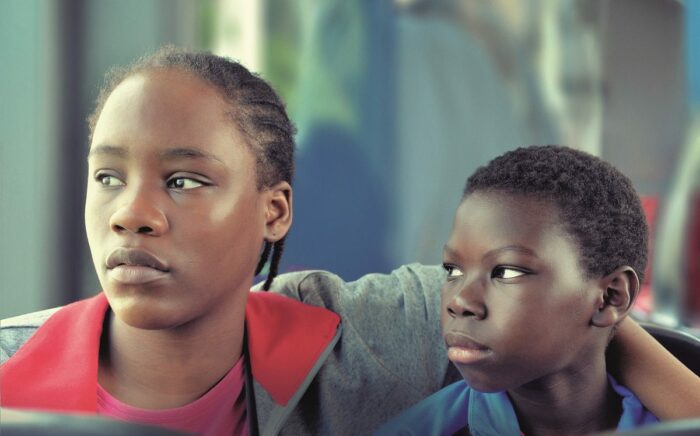
Another Cannes Prize winner arriving in North American theaters this spring—and like The Eight Mountains one of the initial films chosen to debut on the new Janus Contemporaries label this fall— the Dardenne brothers’ Tori and Lokita is no-frills filmmaking at its finest. The auteur siblings’s style is by now well refined, and their newest film neither deviates nor disappoints: its first shot is a long take lasting over two minutes, and another five or six go by before the Dardennes use anything other but the same medium-close perspective. Nothing gets in the way of their story of two children trapped in a system that cannot do them justice.
Lokita (Joely Mbundu), a 17-year-old from Benin, and Tori (Pablo Schils), 12, from Cameroon, depend on each other for support and survival, adopting the pretense that they are brother and sister. Their situation is dire: their restaurant boss, who uses the two children as runners for his drug deals. The two not-siblings are under constant pressure from the immigration authorities and the drug cartel both. When Lokita is stretched to her breaking point and plots her escape, she and Tori find themselves in an escalating series of dangerous predicaments.
In the Dardennes’ sure-handed storytelling style, Tori and Lokita never lapses into generic convention, even though it is essentially an on-the-lam thriller. If film noir told the tale of undocumented immigrants falling into and running from a life of crime, and if it did so in the vein of the Dardenne’s neo-neorealism, Tori and Lokita might be the result: but more importantly, the film carefully studies the conflicts that entrap and exploit those who, by virtue of their undocumented status, are at the greatest jeopardy for trafficking and exploitation. — J Paul Johnson
Linoleum
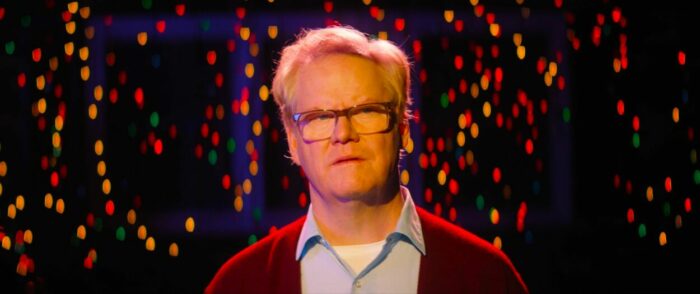
In every layer of my moviegoing and film criticism, I really try hard not to get caught up in so-called “expectations.” It’s a banned word for me when I write, but I’ll call a team-up piece like this to be a safe place. Looking back at 2023 so far, if there was a movie that shattered those e-words (if I really invested in them), it was the science-fiction dramedy Linoleum from writer-director Colin West and the burgeoning Shout! Studios.
Like many late-night Netflix watchers, when I see Jim Gaffigan, I see self-deprecating humor before I see anything else. In Linoleum, Jim plays a confused and depressed middle-aged man going through an endless string of disappointments, between his TV hosting duties and his crumbling marriage. There are no bits and punchlines as he wills imaginative hope to think he can segue from being a TV scientist to a real astronaut. To see Jim Gaffigan step away from the stage microphone and continue to stretch his legs as an honest actor surprised the hell out of me. In my eyes, it’s an award-worthy performance.
Linoleum swerves from its quirky premise to dive towards thought-provoking triggers that are both wondrous and heart-wrenching. When little indies like this show the courage to pull the complete rug out from under the audiences and subvert expectations, they deserve to be celebrated. This hidden gem from February and the small-side festival circuit is available now to watch on Hulu. — Don Shanahan
The Wind and the Reckoning
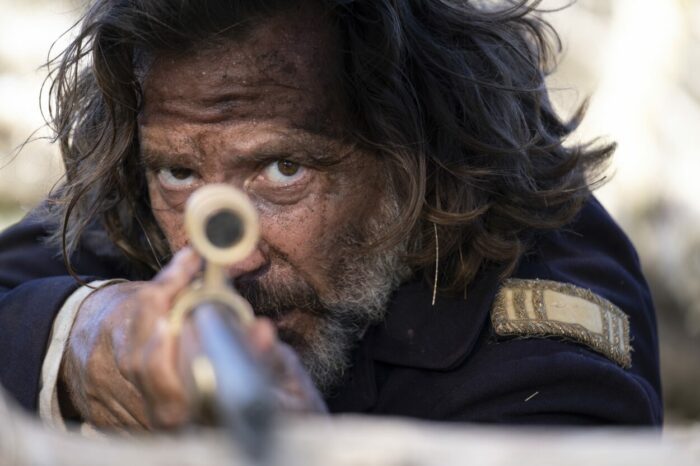
Go ahead and call me out as the old Social Studies teacher on the writing staff. I am the sucker who will take a stab at films chronicling and dramatizing little-known history. I know they are often tagged by the suspicious “inspired by real-life events” label trying to boost their promotional draw, but I found a low-key winner this year in The Wind and The Reckoning.
The film stars Jason Scott Lee (Dragon: The Bruce Lee Story) as Koo’lau, a sharp-shooting cowboy working ranches on Kauai. He and his young son have contracted leprosy, though his wife Pi’lani (Lindsay Watson of Finding Ohana) hasn’t. By order of the local American military, anyone showing signs of the disease are rounded up and sent to colony on a neighboring island. Told from the real written accounts of Pi’lani, The Wind and the Reckoning unfolds into a strong, naturalistic western of sorts where Koo’lau flees the authorities to keep his family together.
Before this film, I did not know about the tragic history of America’s territorial occupation of Hawai’i, particularly the Koo’lau Rebellion, the long-standing Kalaupapa Leprosy colony use of the island of Moloka’i, and the ensuing displacement of families. Thanks to the care and consideration of this film scripted by Young Guns series writer John Fusco and directed by David L. Cunningham (a Swiss-born filmmaker raised in Hawai’i), I’m a better man for it. This is a very respectful and still exciting history lesson fit for classroom audiences and cinephiles alike. — Don Shanahan
Monster

Hirokazu Koreeda is one of the most accomplished and sensitive filmmakers working today, but one adjective I had never previously associated him with is “exciting.” That was until the release of his latest and possibly best film, the mesmerizing mystery drama Monster, a Koreeda film as tender and empathetic as any other, yet instilled with a new vibrant intensity, a labyrinthine story and horrific undertones. Telling the same events from the perspectives of three different characters, Koreeda accesses his humanist approach to the world while exploring generic avenues that test his grasp of storytelling further than ever.
Whether or not this is Kore-eda’s best film yet, it certainly marks a new high for the director in terms of scope, ambition and narrative complexity. Yuji Sakamoto’s genius script reaches a new level of intensity of melodrama and a breadth of scope that encompasses multiple genres, tones and interpretations. At times, one feels as if it might be about to morph into a twisted and nightmarish a horror film, yet by the end, it’s the most tender and uplifting of coming-of-age stories. Few films this year have left me so enchanted and none so astonished. This is the kind of film I watch movies for— intelligent, poignant, moving and electrifyingly unpredictable. — Hal Kitchen
How about you? Which films wowed you that our staff have missed or underrated?



